Aging, as They Say, is Not for Sissies; But it is for Pussies
By Shari Collins
“You’re 50!” the OB/GYN yelled. She was clearly exasperated. Oh, and she looked like she was maybe 23. I tried again to express my desire for a diaphragm. “You’re 50!” she repeated, even louder and more exasperated. I started to speak but she interrupted me, “You’re not going to get pregnant! You’re 50!” It was as if I was in a bar and had propositioned her and she was throwing a cold drink in my face.
I hadn’t been to a gynecologist in over a decade. I have a woman primary doctor and she always took care of those things as part of my annual exam. I was at the gynecologist’s office due to an abnormal Pap smear and while there for a consultation, I decided to also return to my previous form of birth control. I wanted to return to the convenience (yes, convenience) of a diaphragm as birth control. While I certainly advocate safe sex, I am not a fan of condoms. And as a smoker over 35, for me condoms are about all that’s healthy, except for diaphragms.
When I gathered my wits and dared to utter the D word again, she said, “Look, they’re not even sold in the United States. I had a patient who had to go to Canada to get hers. We’re not even taught how to fit them in medical school!” (As she didn’t even look old enough for medical school, I could then safely assume that she had not been taught to fit one.) “If you really want one you’re going to have to find an old doctor. You’re 50! You’re not going to get pregnant!” (Note: A call to Planned Parenthood revealed the availability of none other than diaphragms in the good ole USA, as well as personnel available to fit same.)
I’m well-aware that I’m 50, as I have been hanging around the planet since 1961. However, as a woman who has not yet hit perimenopause, I was under the assumption that I could get pregnant. I still break out before my period! Not long ago I read an article about moms in their early fifties, with toddlers. I had a friend in the 1970s whose mom was in her late sixties. I’ve heard of more than one “oops” baby being born after a woman has hit the mid-century mark.
The education I received in my teens led me to believe that as long as I was menstruating, I was fertile. I knew that it was more difficult for “older” women to get pregnant, and of the increased rates of twins and Down syndrome. But no one ever told me that without extreme modern technological intervention, women my age have virtually no chance of becoming pregnant naturally. My doctor never took me aside and said, “Have at it, you’re beyond the fray!” Nor did she tell me I didn’t need Plan B when I inquired. Nor did the pharmacist say not to worry, that I couldn’t get pregnant when I forked over more than $50 for same. I’ve been under the illusion that I could still, if I chose to, have a child—naturally.
Apparently I’m the last to know that a woman my age conceiving naturally would make international news. Neither the doctor nor the pharmacist thought to mention that I was aborting my chance for international news coverage when I took that Plan B pill. Not only are the statistics for “natural” birth among women over 50 in the tiny decimal ranges, but there are a few zeros before an actual number shows up. While many women in their fifties do well in pregnancy, those women have almost exclusively become pregnant through IVF, and with “donor” eggs provided by younger, more fertile women.
Aside from the emotional whiplash and profound feeling of ignorance after my gynecologist visit, I am left with mixed feelings of anger, grief, and relief. Once I processed the harsh and rude treatment I had received from the tween doctor, I was angry at her incredible arrogance and disregard for my humanity. There really was no excuse for the way in which she spoke “to” me, especially within the first few seconds of our meeting. As my Pap smear was abnormal, and I had also experienced an early period, I was also there with a nagging fear of cancer. As I was there as a potential perimenopausal woman with more than a little trepidation about the Pap smear results, anyone with a whit of empathy would have approached me differently. I certainly didn’t need to have my age shouted at me repeatedly like an insult hurled on the street.
Further, her complete disdain and dismissal of my choice of birth control left me seething. First of all, as Planned Parenthood fits diaphragms and has a number of sizes in stock, she was egregiously wrong and passed on serious misinformation. Secondly, I tried to take the pill in my twenties—twice. It gave me 24/7 PMS. The kind of PMS that made me want to rip chrome off of old cars. The kind of PMS that made sex as appealing as a root canal. As I was in a monogamous marriage, I turned to the tried-and-true barrier method of a diaphragm. While statistics on its effectiveness were less convincing than the pill, people also reported getting pregnant with the diaphragm while it was in a bedroom drawer. As a hyper-vigilant young woman who fully knew what it meant to have a child (knowledge gleaned from years of intense babysitting and as a child care worker), I used my diaphragm properly and ritually.
As is now clear, the Pill carries myriad risks, especially for smokers–and women over 35. I fall into both risk categories, and even if I did not, the Pill made me bat-shit crazy. I find the idea of an IUD, especially with the history of the Dalkon Shield, unappealing, and anything that continually manipulates hormones to be unacceptable. I successfully used a diaphragm for over fifteen years until my then-husband got a vasectomy in the late 1990s. So I’d been away from the birth control information stream for a while. As I’ve now fallen in love with and committed to a monogamous relationship with an amazing younger man who is no doubt fertile, and as I assumed that I could still get pregnant, I thought the responsible and rational thing to do was to return to the diaphragm.
Little did I know that my periods were a mirage in the desert of my fertility.
As I took in this new knowledge about women my age and the likelihood of a natural pregnancy, I realized that somewhere along the way my chance of having a biological child vanished. As I always understood what a child entailed—as much as one can without actually having a child—I was absolutely determined to not get pregnant accidentally. I can count on one hand the number of times I was seriously ready to get pregnant, and at each of those times my then-husband was not ready. I was in my thirties when those rare yearnings hit, and I always thought that as long as I was menstruating, I could decide to conceive. The door was available if I chose to go through it.
Through my thirties and forties I was a stepparent. I came to know the joy and responsibility and real work that children bring. At one point my stepsons were with us for the summer, and we had my then- husband’s grandmother (in early dementia) also living with us. I could not conceive (pun intended) of adding a baby to that scenario. At age fourteen, my oldest stepson moved in with us. He was addicted to drugs and failing school. While it was an incredible journey with him as he got clean and graduated from high school with a 3.8 GPA and myriad AP credits, I could not imagine having a baby under those conditions. He is an amazing young man now, with joint bachelor’s degrees in mathematics and physics, and while I made many, many parenting mistakes with him, I also gained immeasurably.
But as anyone who has been a stepparent and then divorced those children’s father knows, your investment and relationship may be disposable. You’re not likely to get a card or note on Mother’s Day. Especially if you made as many mistakes as I did. And your years feel most especially like a loss and waste when your ex-husband reunites with their mother.
Given my life experience, and my assumption that I could still, if I chose to, get pregnant, when I found out that I was beyond the fray, an unexpected grief set in. First I had heartfelt conversations with my partner who had earlier said that if I wanted a child, we could have one. Thankfully he has a ten-year-old son, so our relationship is not stressed by his wanting a child that I cannot have. And thankfully he is an emotionally intelligent man who took my shock and grieving in stride. This is especially significant as I didn’t get in touch with my grief directly, but it came out sideways after an interchange with his son that reminded me of an earlier time and put the now closed door of my fertility in clearer focus.
That focus is rather like the multiple lenses I look through during an eye exam. The reconciling of my past assumptions with present knowledge is no easy feat. I think I’m finished with it, and it sneaks in yet again to scream that it is too late, that my decision is forever. Ironically, I always kept in the forefront of my mind the knowledge that having a child was forever, and if you look at my actions, I could not commit to that forever. It feels like I didn’t get to consciously make the final choice, that I didn’t keep a lottery ticket that could have been a winner. It feels like intangible loss.
Yet it also feels liberating.
Sometimes I have huge to-do lists and I misplace them, find them later, and am relieved to be able to cross off items that time took care of, things with which I did not have to grapple. “Make a decision to have a biological child” is now crossed off of the list. I clearly trusted myself enough to not have one all of those years; I trusted in my decision that either I wasn’t ready or the time was not right. I trusted that my life was full enough that I did not have the energy to offer to a biological child. I often reveled in my freedom from what colleagues and friends experienced in parenthood. I identified with the term “child-free” and not “childless.” I asked my former husband to get a vasectomy and he did, thus sealing the deal then.
I am aware that if I wanted to adopt an older child I could, something I’ve been a staunch supporter of all my life. I believe that adoption is the most unselfish act on the planet. But adoption is the exact same decision as having a biological child regarding responsibility and lifetime commitment. You get to rip your heart out of your chest and let him/her carry it around. It is forever. I couldn’t commit to that forever.
So I have plenty to be thankful for, and a newfound liberty to celebrate. I am relieved that I do not have to deal with ex-husbands and their partners over a child. I have certain physical advantages that childbirth would have changed, advantages that both my partner and I enjoy. I do not come with the baggage that a single mother does. And best of all, I can now have fun with my partner sans condoms and the fear of a pregnancy, something I’ve never been free of my entire sexually active life. And, “I’m 50!” That comes with a lot less drama than my earlier years, a lot less taking things personally, a lot more acceptance, and a lot more self-confidence. While I am not someone’s mother, and as such I get to experience the disconnect of being in a society that celebrates motherhood, I am also free of the ties that I did not want to bind me.
I had the colposcopy performed by another woman gynecologist. It was negative, but I have to be checked again in six months. Mother’s Day this year was accompanied with absolute silence and a fairly despairing bout of depression. But two things are certain. I will not let another doctor speak to me in that manner, and I will integrate my life experiences and choices into my present and future with gratitude for my glass that is half full.
______________________________________________
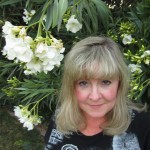 Shari Collins is an associate professor of philosophy at Arizona State University. She has published on environmental rights, environmental labels, environmental refugees, and discrimination in the criminal justice system. She is also editor of Ethical Challenges to Business as Usual, and former co-editor of Applied Ethics: A Multicultural Approach (volumes one through four). Her current research is a qualitative study of online sex sites drawn from over seventy interviews. Shari makes paper, journals, and cards in her home studio and they are sold at a gallery in downtown Phoenix. She is presently addicted to exercising her green thumb in every manner living in Phoenix allows.
Shari Collins is an associate professor of philosophy at Arizona State University. She has published on environmental rights, environmental labels, environmental refugees, and discrimination in the criminal justice system. She is also editor of Ethical Challenges to Business as Usual, and former co-editor of Applied Ethics: A Multicultural Approach (volumes one through four). Her current research is a qualitative study of online sex sites drawn from over seventy interviews. Shari makes paper, journals, and cards in her home studio and they are sold at a gallery in downtown Phoenix. She is presently addicted to exercising her green thumb in every manner living in Phoenix allows.

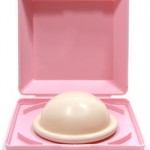
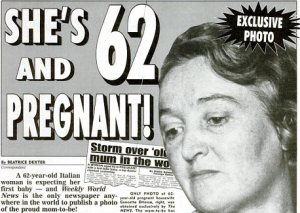
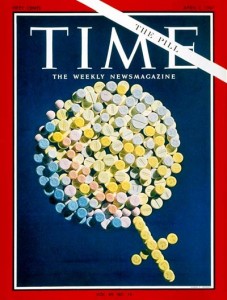
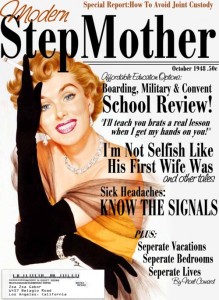



8 Comments